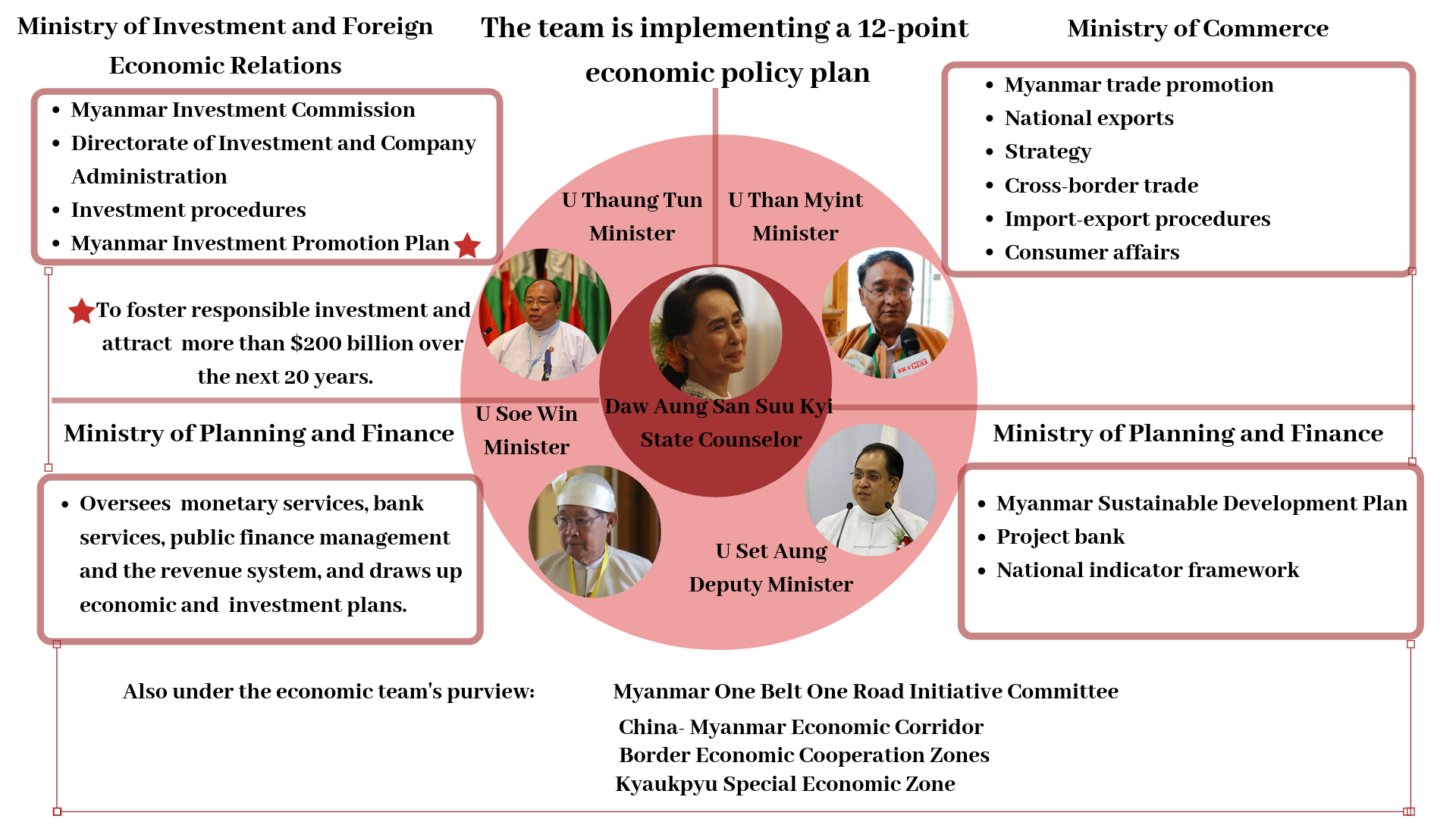YANGON — Nearly three years after taking office, the National League for Democracy (NLD) has garnered mixed reviews for its efforts to transform the country into a democracy.
While campaigning for the 2015 elections that swept it to power, the NLD published a 20-page manifesto outlining its plans for economic development, constitutional reform and peace.
The administration’s record on economic reform has been mixed. The government has had some big successes, including the release of the overarching Myanmar Sustainable Development Plan, a new Companies Law and some financial and banking sector regulation reforms. However, reform efforts have also been slowed down by some major setbacks, from a weakening currency to high inflation, armed conflict and shifting policies.
Foreign direct investment (FDI) declined significantly following news of the 2017 Rohingya crisis, which badly tarnished the country’s image. Western investors have grown increasingly cautious of Myanmar.
Overall trade volume has increased under the NLD—exports especially—though the current account deficit has hardly budged.
Meanwhile, the peace process is faltering and efforts at constitutional reform are just beginning.
Myanmar has also seen improvements in international measures of corruption, civil liberties and political rights, but the arrests of several journalists have sent its press freedom ranking tumbling.
Here, The Irrawaddy illustrates the fluctuations in the country’s GDP, FDI, current account, trade volume, inflation and measures of civil liberty, political freedom and press freedom from the previous administration to the present.
The NLD’s economic team, its policies and strategies
The team is playing a major role in the economic policies, strategies and actions of the current government.


















